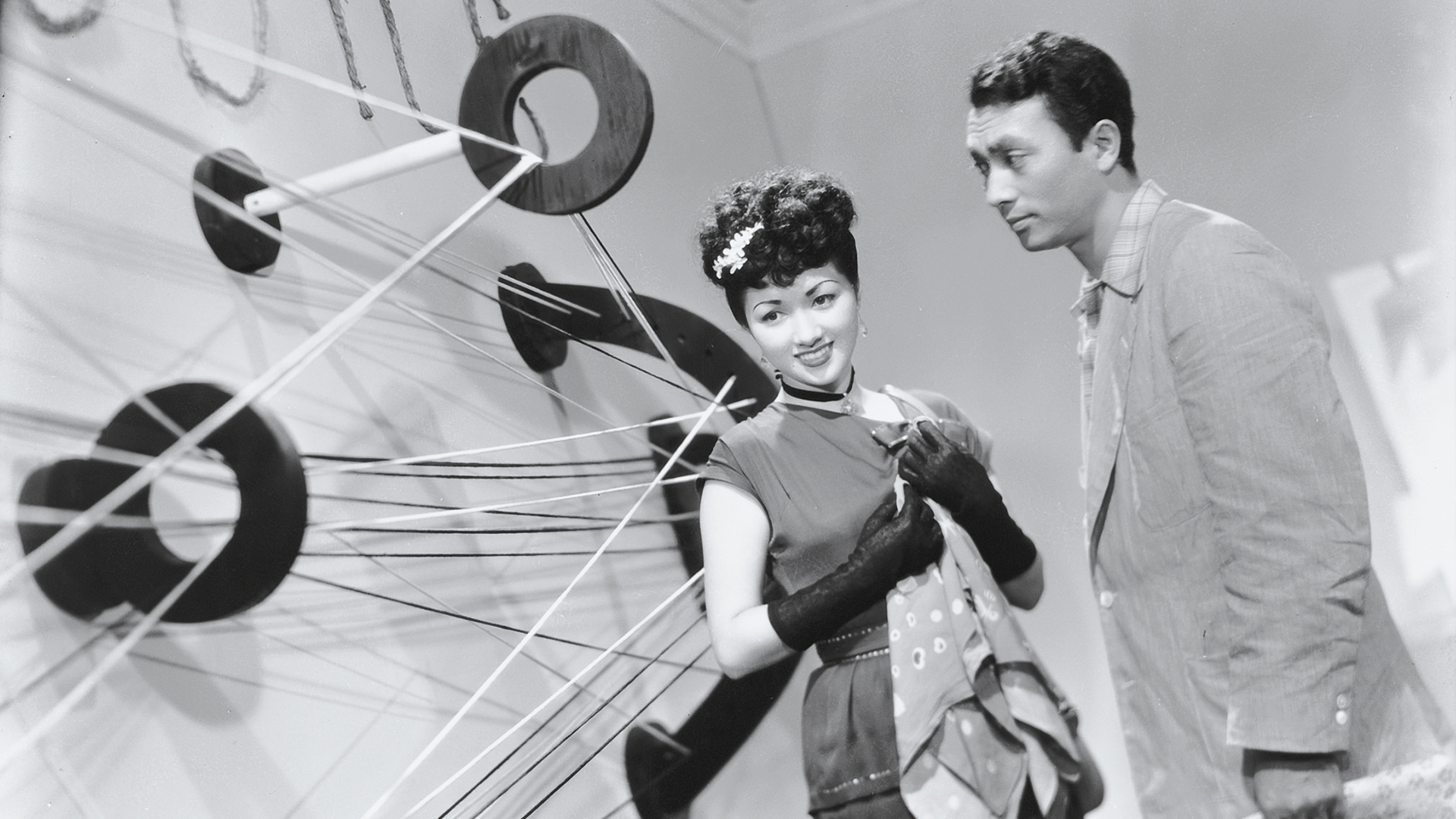
Keisuke KINOSHITA 木下恵介
Carmen’s Pure Love
Nippon Retro ²
Struggling to make ends meet in Tokyo, Carmen and her friend Akemi are drawn into the elitist art scene and the political campaign of a right-wing candidate. The loose sequel to CARMEN COMES HOME (1951), regarded by many experts as one of Japan’s best satires, features cinematography just as zany as its story.
カルメン純情す
Karumen junjo su
日本 1952
103 分
海外セールス
Shochiku
フィルム所蔵
Japan Foundation
キャスト
Hideko TAKAMINE, Masao WAKAHARA, Chikage AWASHIMA, Toshiko KOBAYASHI, Eiko MIYOSHI
About Keisuke KINOSHITA
木下恵介
Keisuke KINOSHITA (1912–1998) is considered one of the most important Japanese directors. Starting in 1943, he made popular dramas, comedies, romances, ghost stories and noir films for Studio Shochiku, finding strong images even within conventions. After ARMY (1944), he was not allowed to work until the end of World War II. From 1945 on, the tension between the past and the hope for a new beginning was his central theme. The suffering, responsibility, and moral challenge of the individual are at the heart of many of his dramas. KINOSHITA’s rejection of feudal, militaristic Japan is clearly visible. With CARMEN COMES HOME (1951), he brought the first Japanese color film to the cinema, a summer comedy with serious overtones. KINOSHITA, who also repeatedly addressed the contrast between country and city, is considered the central humanist of post-war Japanese cinema. His sensitively-portrayed characters and their fates continue to touch audiences today.
協力:Japan Foundation Tokyo 、 Japanisches Kulturinstitut (The Japan Foundation)


